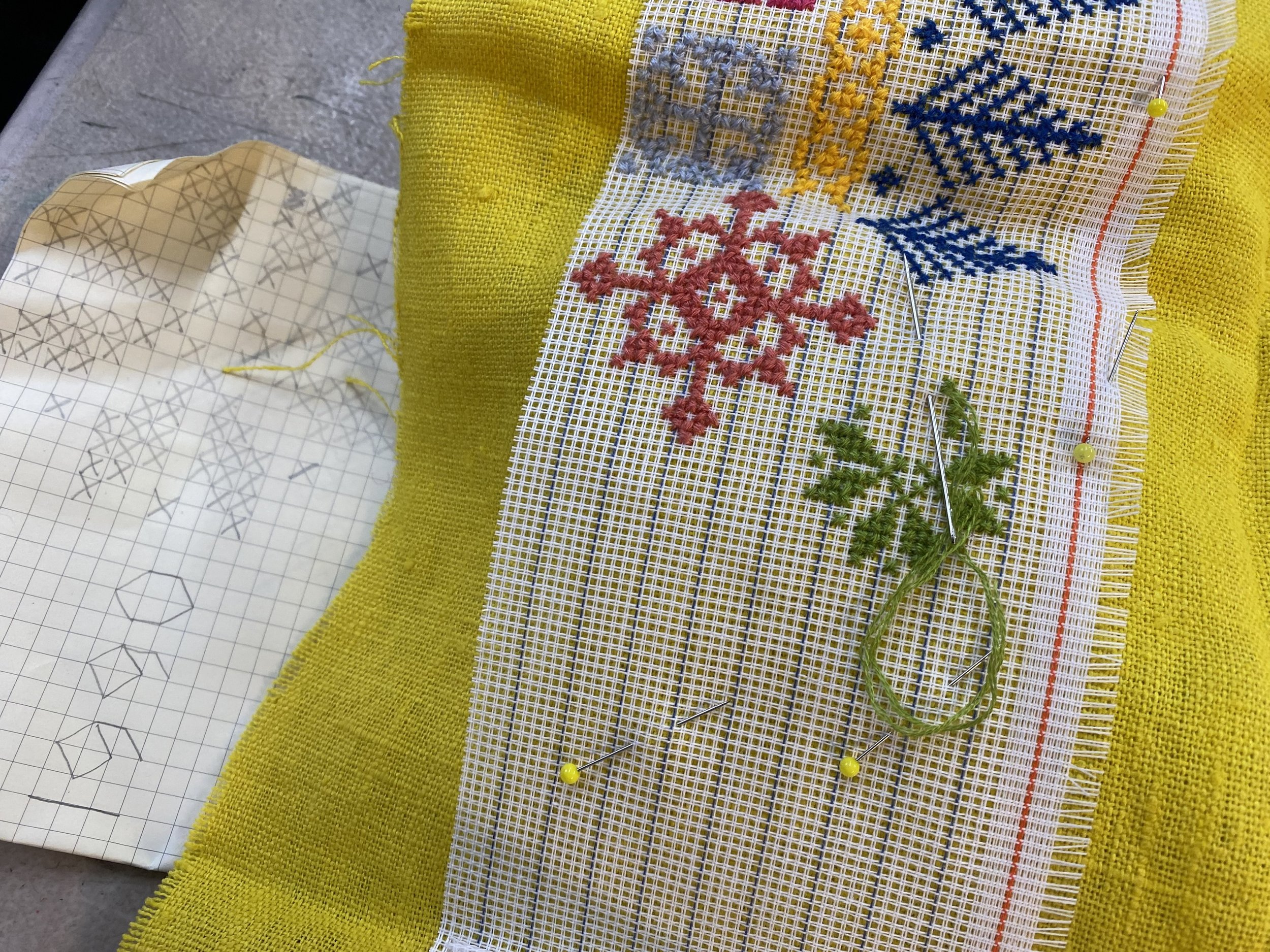Louisa Pesel (1870-1947) was born in Manningham, Bradford and a recent project working with volunteers and participants living in that area has explored her connections to the city. Pesel is known for her work in later life with the Winchester broderers and for setting up what became the Embroiderers Guild. This project, supported by Bradford Metropolitan District Council, focussed on her life in the City, particularly during the First World War. Pesel came from an affluent family who were highly involved in the social and cultural life of the city. Her parents were part of a network of educated, engaged citizens who were involved in charitable works and the life of the Unitarian Chapel. This project has uncovered Pesel’s connections to the Belgian Institute, opened for a newly arrived community of Belgian refugees in late 1914. This building, on Manor Row in the city centre, provided workshop facilities for the new arrivals including woodworking, cobbling, millinery, toy making and dressmaking. Later in the war Pesel was instrumental in setting up the Bradford Khaki Handicrafts Club for soldiers resident in the Abram Peel Hospital experiencing the psychological impacts of the war. I wrote about this project in my second book, Resilient Stitch: Wellbeing and Connection in Textile Art.
Participant work in progress using canvas work techniques inspired by Pesel archive materials at The University of Leeds
The project has worked with a team of fantastic community researchers who have uncovered many more details about Pesel’s Bradford connections. Groups from the refugee and asylum seeking community and others have worked on textile projects exploring their personal wellbeing. We have been keen to look at the heritage of textile work and health and wellbeing through the lens of Pesel’s work and used archive material in the University of Leeds Special Collections to evidence this. A small publication exploring these themes and written by the researchers and myself is available to read online.

